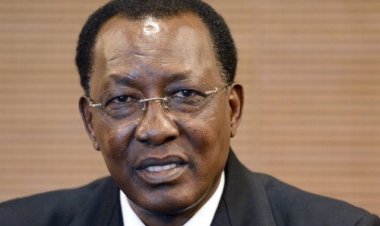The transitional period in Chad, which was imposed after the death of President Idriss Deby, will last for 18 months, the military council said on Tuesday, also announcing the closure of land and air borders.
A transitional military council, led by the son of the late president, was established in Chad.
“The transitional military council ensures national independence, territorial integrity, unity, respect for international agreements and treaties, and also ensures a transition within 18 months,” the council said in a statement, published on the presidential website.
The transitional military council also announced it would dissolve the cabinet and the parliament.
“Land and air borders are closed until further notice,” the statement read on.
Apart from that, a nationwide curfew will be imposed from 18:00 p.m. until 05:00 a.m. local time.
A military spokesman said on Monday that Chadian soldiers halted a rebel advance in the country’s north, after American and British embassies urged personnel to leave ahead of a possible assault on the capital.
General Azim Bermandoa Agouna, the Chad Army spokesperson, said the country’s forces had “defeated a group of terrorists who had ventured into the north of the Kanem province”, on national TV on Saturday.
He said that the clashes had taken place late Saturday and that the rebel column from Libya was “totally decimated”.
The rebels are believed to be from a group known by its French acronym FACT: The Front for Change and Concord in Chad.
The central African nation that held presidential elections last week has had a long history of rebellions during the 30-year reign of President Idriss Deby Itno, who is expected to remain in power.
At times he has accused neighboring countries of supporting the rebel movements.
Chadian soldiers also have long battled militants from the extremist group Boko Haram.
Some 330,000 Chadians are internally displaced, the majority in the volatile Lake Chad region where Boko Haram fighters are most active.

 Featured7 days ago
Featured7 days ago
 Latest1 week ago
Latest1 week ago
 Business7 days ago
Business7 days ago
 Latest1 week ago
Latest1 week ago
 News5 days ago
News5 days ago
 Football1 week ago
Football1 week ago
 Football1 week ago
Football1 week ago
 Latest7 days ago
Latest7 days ago

